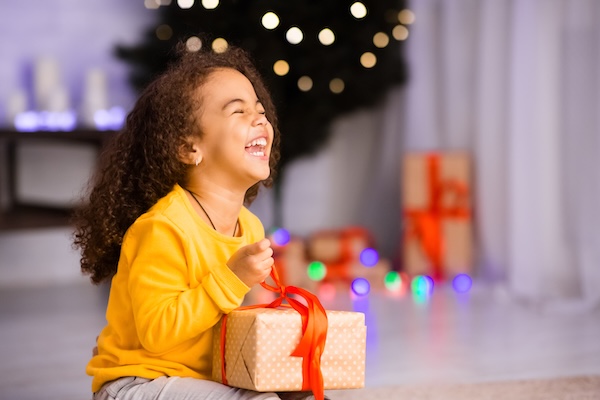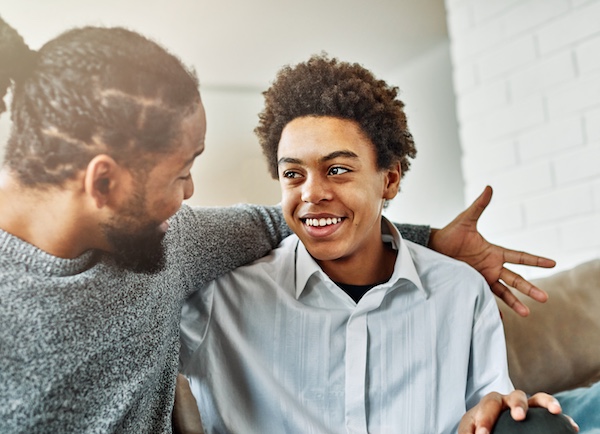Drag
Select
Call Now
Helping your child cope after a natural disaster
Parent
Kid

Experiencing a natural disaster can be frightening and unsettling for the entire family. You may be grieving the loss of your home, loved ones, or the absence of your day-to-day routine, and it can be difficult to know just how to support your child when you’re struggling yourself. That’s why the team at Bend is here with our top go-to tips for helping your child cope after a natural disaster.
Top ways to cope after a natural disaster
It can be difficult to know what to do and what to say when your world has been dramatically altered by a natural disaster. Rest assured that letting your child know that they are safe and protected is a great start to helping them get through this difficult time with love and support.
- Listen to and validate their feelings. Try your best to show up for your child by fully listening to what they have to say without interrupting or attempting to “fix” their more difficult emotions. You can help them feel heard by saying something like, “I hear that you are feeling ____. I’m so glad that you shared this with me.” You can even take time and space to journal together, or you can encourage younger kids to draw out how they are feeling. Let them know they can always come to you when anything is on their mind.
- Stick to the facts. Encourage your child to come to you with any questions that they may have, and try sticking to the facts as much as possible. Addressing their concerns in a calm, confident manner while assuring them that you are there to keep them safe will go a long way in easing their fears.
- Find time to connect with one another. A natural disaster can leave everyone feeling uneasy and overwhelmed. Try bringing some normalcy and levity into your days by doing something that you enjoy together. If you’re able to access some of your day-to-day comforts, try doing things like playing a board game together, making a family meal, or creating an art project.
- Try getting back to your routine. We know this one may not always be possible, but try bringing as much structure and normalcy back into your child’s life as soon as possible. If their school is open, make sure that they attend class and try to keep things like morning and bedtime routines as consistent as you can, given the circumstances.
- Limit news exposure. Seeing disturbing images of a natural disaster can be traumatic for a child who is currently living through the aftermath. Try limiting news exposure and monitoring their social media usage as much as possible.
- Find ways to give back to the community. If those around you have been affected by a natural disaster, consider involving your family in lending a helping hand. Being of service to others can bring joy and purpose in an otherwise unpredictable time. Can you offer to help a neighbor clean up their yard or bring donations to a local shelter to help those who may have been displaced? Encourage your child to get involved in finding ways to give back.
Creating a family safety plan
Coming together as a family to create an updated safety plan can help everyone feel more at ease in the wake of a natural disaster. Here are some steps you can take toward putting your loved one’s safety first:
- Let your child help with specific tasks, like creating a safety supplies kit using items suggested by the American Red Cross.
- Learn about your community’s evacuation plan, warning systems, and available shelters.
- Educate yourself on disaster plans at your workplace, your child’s school, and any other place you and your family spend time.
- Determine a meeting spot for everyone in your family in case of an emergency. You can come up with an evacuation and meeting plan based on the type of emergency, like a fire, flood, or other natural disaster.
- Make a communication plan and ask an out-of-town friend or relative to be your emergency contact that everyone can call to report where they are after a natural disaster.
- Identify local organizations, like FEMA or the American Red Cross, that perform emergency management and know how to contact them.
- Assign responsibilities to each family member and find ways to work together as a team.
- Create a plan for your pets in case of an emergency.
- Hold family meetings to discuss safety plans so that everyone feels informed and prepared.
Emotional and psychological impact after a natural disaster
A natural disaster can have a big impact on kids. They may experience increased anxiety, fear, and worry about their safety and the safety of their loved ones. Exposure to traumatic events can lead to symptoms of post-traumatic stress disorder (PTSD), including nightmares, flashbacks, and intrusive thoughts.
Be on the lookout for changes in behavior such as increased irritability, aggression, withdrawal, or clinginess and reach out for mental health support if you notice that your child is exhibiting any of these symptoms.
{{journcgteen="/blogcomponents"}}
The importance of seeking support
Experiencing a natural disaster can cause a great deal of stress and anxiety for everyone in your family. Be sure to monitor your child or teen closely and note any changes in mood, behavior, sleeping or eating habits, and concentration levels. If you are currently in Bend care, know that your coach or therapist is here to help your family process what they have been through.
It’s important to seek out the support of a mental health professional if you or members of your family are struggling. The team at Bend is standing by to offer compassionate care, along with evidence-based therapeutic tools, to help kids, teens, young adults, and their families get through life’s more difficult times. Remember that you don’t have to navigate these challenges alone; we’ll be here whenever you need us.




